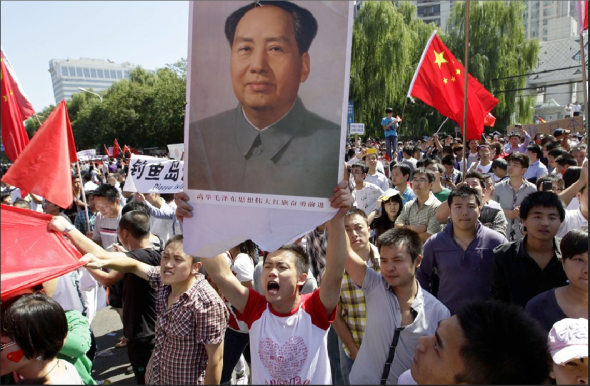Following his recent challenge to the narrative that Beijing’s actions are significantly constrained by public nationalism, Andrew Chubb asks at South Sea Conversations, “to what extent should we really understand the phenomena that get labelled ‘Chinese nationalism’ in those terms?” He translates a conversation with a pro-war taxi driver from the introduction to Phoenix TV host Qiu Zhenhai’s book:
“What is good about war? It could leave us broken and destitute.” I decided to have some fun with the driver.
“War is good, it reshuffles the cards. Otherwise, people like me will be driving taxis until we’re 80.” His frankness was startling, and I suddenly felt a pang of seriousness.
[…] “If I lose my life, I lose my life. I’m not like those people who own property or companies. I’m even less like the corrupt officials who have riches they can steal. I am a proletarian, with nothing to care about. These days I don’t see any hope, it’s better to just take a gamble.” He was getting more and more forthright.
His answers made me feel heavy and serious. I didn’t feel the need to provoke him any more.
[…] How many of the expressions of Chinese desire for war over remote uninhabited islands have less to do with avenging “national humiliation” or reclaiming “ancestral territory” than with a desire for something, anything, to shake Chinese society up? [Source]








